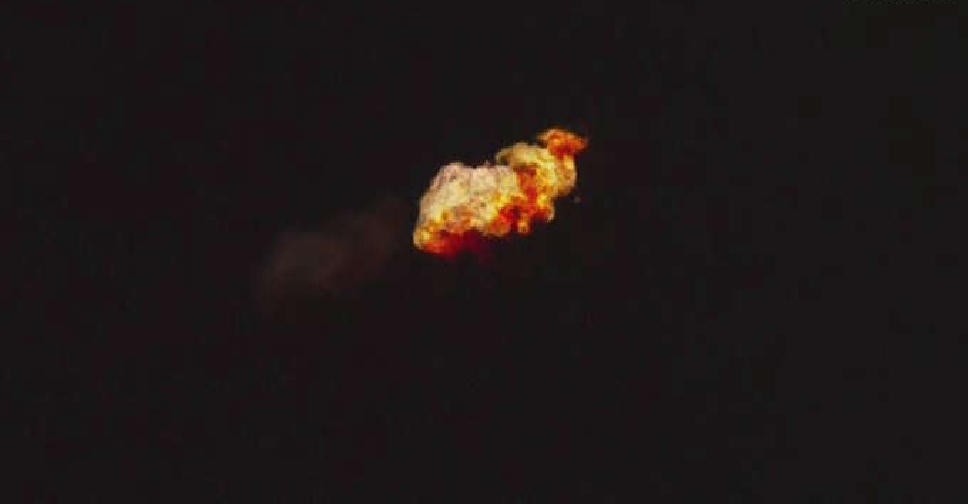
An experimental Alzheimer's disease drug developed by Eli Lilly and Co slowed cognitive decline by 35 per cent in a closely watched, late-stage trial, the company said on Wednesday, raising hopes for a second effective treatment for the brain-wasting disease.
The drug, donanemab, met all primary and secondary goals of the trial. It slowed progression of Alzheimer's by 35 per cent to 36 per cent compared to a placebo in 1,182 people diagnosed with early-stage disease based on scans showing brain deposits of a protein called amyloid and intermediate levels of a second protein known as tau, Lilly said.
The trial's other 552 patients had high levels of tau, suggesting they would be less likely to respond to the treatment.
After combining both groups, donanemab was shown to slow progression of Alzheimer's by 22 per cent using a Lilly-developed scale to measure cognition and activities of daily living, and by 29 per cent based on a more commonly used scale of dementia progression.
Eli Lilly's shares rose nearly 3 per cent at $415.52 in premarket trading.
Using that dementia scale, trial results published last year showed that Eisai Co Ltd and Biogen Inc's Leqembi reduced the rate of cognitive decline by 27 per cent compared to a placebo in patients with early Alzheimer's.
In the donanemab treatment group, Lilly said brain swelling, a known side effect of drugs of this type, occurred in 24 per cent of participants, with 6.1 per cent experiencing symptoms. Brain bleeding occurred in 31.4 per cent of the donanemab group and 13.6 per cent of the placebo group.
In the Leqembi Phase 3 trial, the drug was associated with brain swelling in nearly 13 per cent of patients.
Lilly said the incidence of serious brain swelling in the donanemab study was 1.6 per cent, including two participants whose deaths were attributed to the condition and third who died after an incident of serious brain swelling.
Dr. Eric Reiman, executive director of the Banner Alzheimer's Institute, which is running an Alzheimer's prevention study of donanemab in presymptomatic patients, said he was "very excited" about the findings. "Clearly, one saw benefits here, but there is some risk that needs to be considered," he said.
The company said it plans to file for traditional US approval by the end of June and with regulators from other countries shortly thereafter.
"There are risks in medicine, but I think when you look at these results in the context of a fatal life-threatening disease, these results are quite meaningful," said Lilly Neuroscience executive Anne White in an interview with Reuters.
Study participants received a monthly intravenous infusion of donanemab. When follow-up brain scans showed the amyloid had been removed, treatment stopped and volunteers were moved to the placebo-arm of the study. Half of trial participants had no evidence of amyloid plaques at 12 months, the company said.
The company also said 47 per cent of donanemab patients in the 18-month trial had no disease progression at 12 months, compared with 29 per cent of the placebo group.
Lilly's drug is likely to become the third in its class on the market following US approval of two similar medicines developed by partners Eisai and Biogen - Leqembi and Aduhelm, which failed to gain traction with doctors or insurers after showing little evidence that it slowed cognitive decline.
Both were approved under the FDA's accelerated review program, based on their ability remove amyloid plaques.
Leqembi is currently undergoing the FDA's standard review process, which will weigh its impact on cognitive function, with a decision due by July 6.
More than 6 million Americans are living with Alzheimer's, and the number is projected to rise to nearly 13 million by 2050, according to the Alzheimer's Association.



 North Korea says latest satellite launch exploded in flight
North Korea says latest satellite launch exploded in flight
 Israeli attack on Rafah tent camp kills 45
Israeli attack on Rafah tent camp kills 45
 Over 2,000 could be buried in Papua New Guinea landslide, authorities say
Over 2,000 could be buried in Papua New Guinea landslide, authorities say
 At least 18 killed in US storms
At least 18 killed in US storms
 Cyclone Remal leaves millions without electricity
Cyclone Remal leaves millions without electricity







